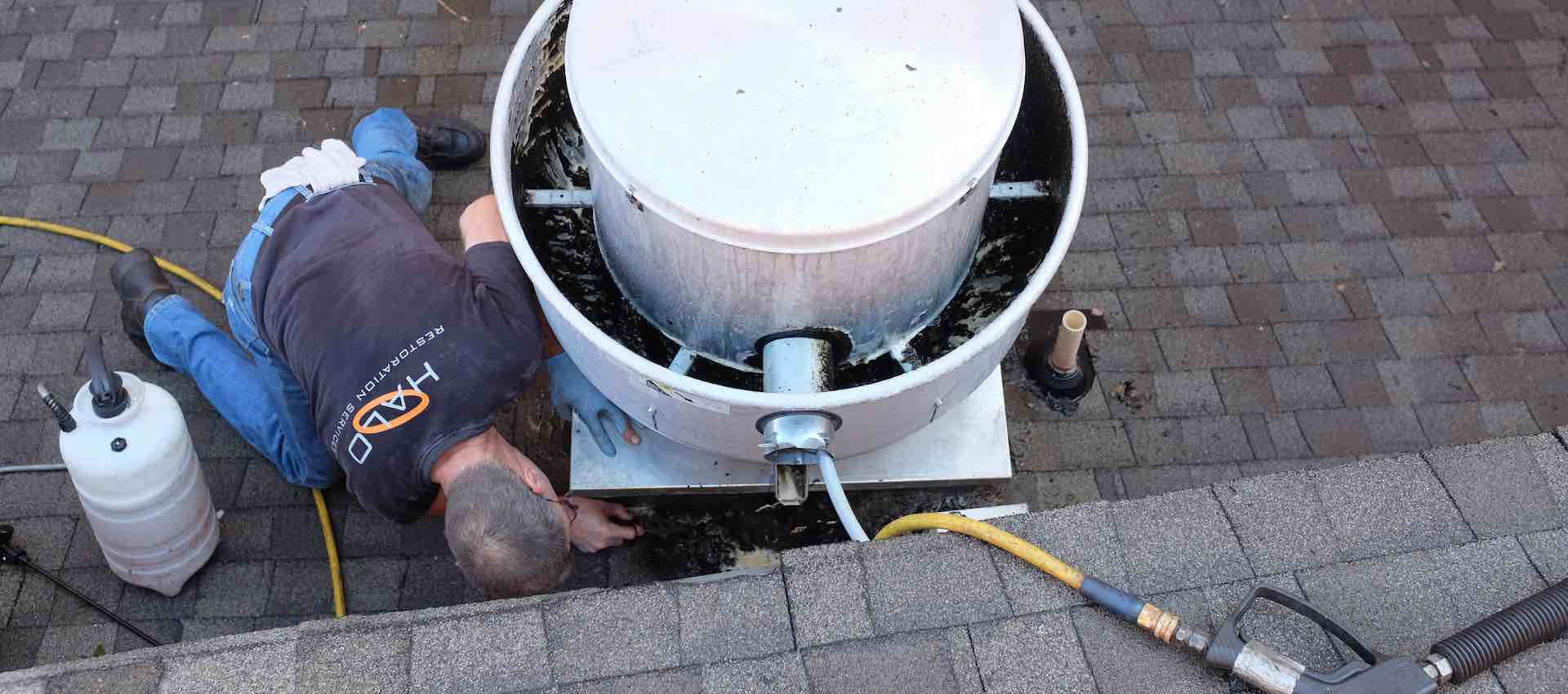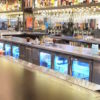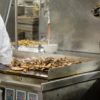A clean vent hood and exhaust system can drastically reduce the chances of a fire in your commercial kitchen. Having a dirty hood, filters and grease trap is fuel for an intense fire, which can quickly overcome the fire protection system and lead to disaster.
According to the National Fire Protection Association (NFPA), nearly 8,000 restaurant establishments report a fire each year, causing an annual average of $246 million in direct property damage.
Here are the top five fire safety issues for commercial kitchens and steps you can take to ensure your kitchen is safe – not only for customers, but for kitchen staff as well.
- Inadequate hood cleaning schedule. Hood and vent systems that are not cleaned regularly can accumulate grease and pose a serious threat of fire. Adequate cleaning schedules can vary, but a full-service restaurant using multiple fryers should be cleaned monthly. It’s recommended that a low-volume kitchen like in a nursing home could only require cleaning annually.
- Baffle filters are installed incorrectly. Filter panels are specifically designed to collect grease, and if not installed properly, the amount of grease they are able to collect may be reduced – causing more accumulation on the hood.
- Improperly installed rooftop grease containment system. The rooftop surrounding kitchen exhaust fan units can become soiled with grease, which can eat their way through the petroleum base of rubber roof membranes. The cost to replace the roof is much higher than the cost to simply maintain it with a grease containment system.
- Exhaust fan belts are not inspected and replaced regularly. Most hood exhaust fan belts have normal wear and tear, which can cause the entire vent hood system to a screeching halt. Belts with visible cracks will break in a matter of time, disrupting business operations and requiring a costly emergency repair service call to be made.
- Lack of or limited amount of duct work access panels. Properly spaced access doors in exhaust ducts are the key to removing combustible grease for a thorough cleaning job. Each access panel should be UL Listed to meet NFPA requirements and designed so that it can be opened and shut many times while ensuring a grease-proof, air-, and fire-tight fit.
Despite the increased risks of fires in restaurant kitchens, knowing some of the greatest hazards within a kitchen setting can help prevent a fire from occurring or spreading.




